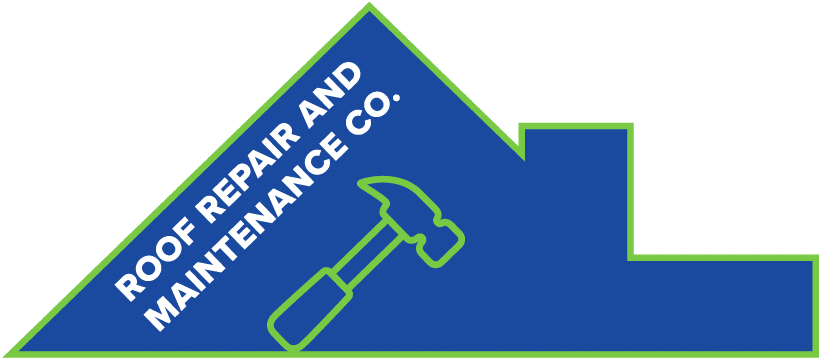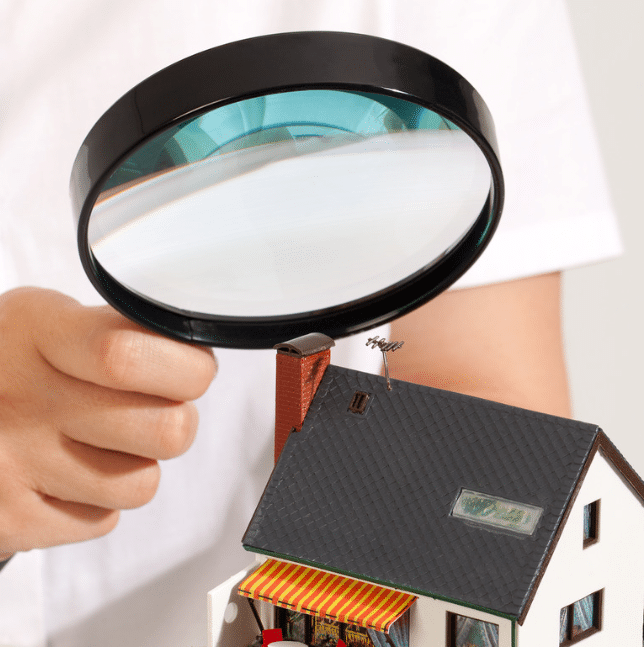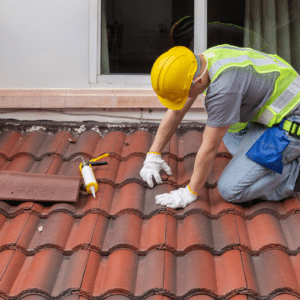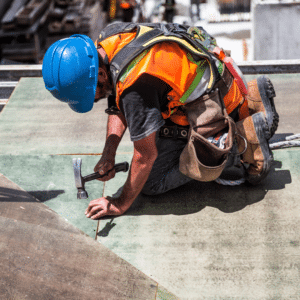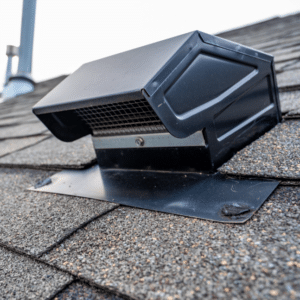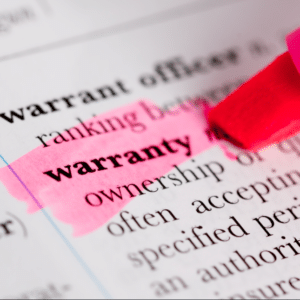Ensuring your home stays safe and secure starts from the top down. Regular roof inspections for homeowners are a critical part of home maintenance, yet many homeowners overlook them until problems arise. This article will guide you through how inspections can protect your investment and give you peace of mind.
Roof inspections are essential for maintaining a home’s structural integrity. They help identify minor issues early, such as damaged shingles, leaks, or debris buildup, before they escalate into costly repairs. Regular inspections also extend the roof lifespan, ensure energy efficiency, and safeguard the home’s value.
Table of Contents
Key Takeaways
- Roof inspections catch small problems before they become expensive repairs.
- Regular maintenance extends your roof’s lifespan and enhances energy efficiency.
- Schedule inspections twice annually and after severe weather for optimal care.
- Hire licensed, insured professionals who provide comprehensive “roof health reports.”
- Preventive care saves money, protects your home’s value, and ensures long-term peace of mind.
Understanding the benefits of proactive roof care can save you time, stress, and money in the long run. Keep reading to learn how often you need inspections, what professionals look for, and tips for maintaining a strong, durable roof.
Why Regular Roof Inspections are the Cornerstone of Home Protection
Your roof faces constant exposure to harsh weather, temperature changes, and natural wear and tear. Over time, small problems like loose shingles, minor leaks, or clogged gutters can become larger issues that impact your entire home. Ignoring these warning signs can lead to structural damage, mold growth, or energy loss, which are costly and time-consuming to repair.
Regular roof inspections for homeowners act as preventive care, ensuring any small issues are caught and resolved early. For instance, a small leak unnoticed during a rainy season can cause significant water damage to your attic insulation and ceilings. Investing in inspections prevents these minor issues from spiraling into expensive repairs and protects the comfort and safety of your home.
What Happens During Professional Roof Inspections
When you schedule roof inspections, a professional contractor conducts a detailed evaluation of your roof’s condition, providing a comprehensive “roof health report” that identifies potential issues and recommends necessary repairs or maintenance. This proactive approach is crucial, as a 2022 survey by Clever Real Estate found that 31% of new home buyers discovered roof problems during inspections. Regular professional evaluations not only prevent unexpected issues but also enhance your roof’s longevity and overall home value, ensuring peace of mind for homeowners.
- Visual Inspection: Checking for missing or damaged shingles, cracks, or sagging areas.
- Leak Detection: Identifying signs of moisture, water damage, or mold growth.
- Gutter and Debris Assessment: Clearing out clogged gutters or debris that could strain your roof’s structure.
- Structural Evaluation: Assessing roof decking, flashing, and underlayment for wear and tear.
- Ventilation and Insulation Check: Ensuring your roof system supports proper airflow to prevent energy loss.
A comprehensive inspection gives homeowners a clear understanding of their roof’s health and peace of mind that their home is secure.
Key Benefits of Scheduling Regular Roof Inspections
Roof inspections are a proactive way to safeguard your home and wallet. By identifying problems early, these inspections help prevent costly repairs and keep your roof in excellent condition for years. Regular checks are especially important, as data from Infogram.com reveals that over 19 percent of home inspections uncover roofing issues. Addressing these problems promptly not only improves energy efficiency but also protects your property value and reduces repair costs. Staying proactive with roof maintenance ensures your home remains secure and your investment protected, even after severe weather events.
Early Problem Detection
Routine roof inspections catch small issues, like cracked or loose shingles and minor leaks, before they become major problems. Left unaddressed, these minor issues can lead to significant damage, such as water infiltration, structural weakening, or mold growth, which are much more expensive and time-consuming to fix.
Extended Roof Lifespan
Regular maintenance ensures your roof stays strong and functional for as long as possible. Addressing minor wear and tear prevents premature aging, allowing your roof to outlast its expected lifespan and saving you thousands on early replacement costs.
Energy Efficiency
A well-maintained roof creates a better seal against the elements, keeping your home insulated. This prevents air leaks, stabilizes indoor temperatures, and reduces strain on heating and cooling systems, which translates to lower energy bills and a more eco-friendly home.
Cost Savings
Tackling minor repairs during inspections costs far less than dealing with extensive damage. Fixing small problems early—such as sealing a minor leak—can save thousands by avoiding costly structural repairs or emergency fixes after damage escalates.
Protecting Home Value
A roof in good condition significantly boosts curb appeal and reassures potential buyers of your home’s integrity. Whether you’re selling soon or in the future, a well-maintained roof can add to your property’s value and make it stand out in a competitive market.
For example, by national average, repairing a minor roof leak early can cost as little as $150 to $400. Allowing it to worsen could result in $2,000 or more in structural repairs. By prioritizing roof inspections, homeowners save both money and stress.
How Often Should Homeowners Schedule Roof Inspections
How frequently you need roof inspections depends on factors like your roof’s age, material, and exposure to weather conditions. As a general rule, schedule inspections twice annually—once in the spring and again in the fall. These seasonal checkups help identify damage caused by temperature changes and prepare your roof for extreme weather. Additionally, inspections after severe events like hail, high winds, or heavy snowfall are crucial to catch any immediate issues before they worsen.
Older roofs, especially those over 15 years old, need more frequent evaluations to ensure longevity and reliability. In areas like Douglas County, CO, where hailstorms and harsh winters are common, regular roof inspections are vital for minimizing risks. Proactive maintenance not only prevents costly repairs but also protects your home investment, ensuring safety and peace of mind for years to come.
Choosing the Right Professional for Roof Inspections
Choosing the right professional for roof inspections is crucial to ensure quality results. Look for contractors with the following qualifications:
- Licensing and Insurance: Verify the company is licensed and carries proper insurance for your protection.
- Experience and Reviews: Look for professionals with strong reputations and positive reviews in your local area.
- Comprehensive Reports: Ensure they provide detailed “roof health reports” with photos and explanations of findings.
When hiring a contractor, ask about their process, timeline, and repair recommendations. A reliable professional will answer questions thoroughly, reinforcing your confidence in their expertise.
The Long-Term Savings of Roof Inspections
Investing in roof inspections is a smart way to save money over time. By addressing issues early, you can prevent unexpected repairs, avoid costly insurance claims, and delay premature roof replacements. Fixing small problems, like minor leaks, is far more affordable than dealing with extensive structural damage caused by water infiltration. Proactive maintenance not only protects your roof but also reduces stress and emergency repair costs.
Regular roof inspections can also lead to long-term savings by lowering insurance premiums and extending the lifespan of your roof. A well-maintained roof can last 20-30 years, depending on the material, compared to a costly full replacement, which can range from $10,000 to $20,000. These inspections act as an investment in your roof and your peace of mind, ensuring your home remains protected for years to come.
How Regular Roof Inspections for Homeowners Ensure a Stronger, Longer-Lasting Roof
A sturdy, well-maintained roof is essential for protecting your home and family. Roof inspections provide a reliable solution for identifying issues early, extending roof life, and preserving home value. By partnering with trusted professionals and prioritizing regular checkups, homeowners can save money, stress, and time while ensuring their roof remains strong for years to come.
If you’re ready to secure your home’s future, consider scheduling a professional inspection today and take the first step toward long-term peace of mind.
Protect your home and extend your roof’s lifespan with expert care. At Roof Repair and Maintenance, we offer comprehensive residential roof services to keep your property safe and secure. Don’t wait for minor issues to become major problems—book your free inspection today and experience the reliability and professionalism you deserve.
How can I tell if my roof needs an inspection?
Some common signs your roof needs an inspection include visible damage like missing shingles, water stains on ceilings, sagging areas, or higher-than-normal energy bills. If your roof is older than 10 years or has recently experienced severe weather, scheduling a professional inspection is highly recommended.
Are roof inspections covered by homeowners insurance?
In most cases, routine roof inspections are considered preventive maintenance and are not covered by insurance. However, if damage occurs due to a covered event, such as hail or windstorms, your insurance may cover the cost of repairs or replacement following a professional assessment.
What is included in a roof health report?
A roof health report includes a detailed assessment of your roof’s condition, highlighting areas of concern such as damaged shingles, leaks, ventilation issues, or structural weaknesses. It typically comes with photos, repair recommendations, and estimated costs, ensuring you have a clear understanding of the next steps.
